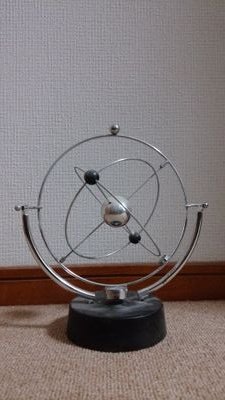結果
| 問題 | No.399 動的な領主 |
| コンテスト | |
| ユーザー |
 kazuma kazuma
|
| 提出日時 | 2017-06-25 03:59:12 |
| 言語 | C++14 (gcc 15.2.0 + boost 1.89.0) |
| 結果 |
AC
|
| 実行時間 | 464 ms / 2,000 ms |
| コード長 | 2,894 bytes |
| 記録 | |
| コンパイル時間 | 1,912 ms |
| コンパイル使用メモリ | 185,896 KB |
| 実行使用メモリ | 20,224 KB |
| 最終ジャッジ日時 | 2024-10-04 04:58:45 |
| 合計ジャッジ時間 | 6,988 ms |
|
ジャッジサーバーID (参考情報) |
judge3 / judge5 |
(要ログイン)
| ファイルパターン | 結果 |
|---|---|
| other | AC * 19 |
ソースコード
#include <bits/stdc++.h>
using namespace std;
using ll = long long;
class HLDecomposition {
vector<vector<int>> g;
vector<int> vid, head, heavy, parent, depth, inv;
int dfs(int curr, int prev) {
parent[curr] = prev;
int sub = 1, max_sub = 0;
for (int next : g[curr]) if (next != prev) {
depth[next] = depth[curr] + 1;
int sub_next = dfs(next, curr);
sub += sub_next;
if (max_sub < sub_next) max_sub = sub_next, heavy[curr] = next;
}
return sub;
}
void bfs() {
int k = 0;
queue<int> q({ 0 });
while (!q.empty()) {
int h = q.front(); q.pop();
for (int i = h; i != -1; i = heavy[i]) {
vid[i] = k++;
inv[vid[i]] = i;
head[i] = h;
for (int j : g[i]) if (j != parent[i] && j != heavy[i]) q.push(j);
}
}
}
public:
HLDecomposition(int n)
: g(n), vid(n, -1), head(n), heavy(n, -1), parent(n), depth(n), inv(n) {}
void add(int u, int v) {
g[u].push_back(v);
g[v].push_back(u);
}
void build() {
dfs(0, -1);
bfs();
}
void for_each(int u, int v, function<void(int, int)> f) {
if (vid[u] > vid[v]) swap(u, v);
f(max(vid[head[v]], vid[u]), vid[v]);
if (head[u] != head[v]) for_each(u, parent[head[v]], f);
}
int lca(int u, int v) {
if (vid[u] > vid[v]) swap(u, v);
if (head[u] == head[v]) return u;
return lca(u, parent[head[v]]);
}
int distance(int u, int v) {
return depth[u] + depth[v] - 2 * depth[lca(u, v)];
}
};
template <typename T>
class LazySegmentTree {
const int n;
const T id;
vector<T> data, data2;
int size(int n) {
int res = 1;
while (res < n) res <<= 1;
return res;
}
T sub(int l, int r, int node, int lb, int ub) {
if (ub <= l || r <= lb) return id;
if (l <= lb && ub <= r) {
return data[node] + data2[node] * (ub - lb);
}
return data2[node] * (min(r, ub) - max(l, lb))
+ sub(l, r, node * 2, lb, (lb + ub) / 2)
+ sub(l, r, node * 2 + 1, (lb + ub) / 2, ub);
}
void suc(int l, int r, int node, int lb, int ub, T val) {
if (ub <= l || r <= lb) return;
if (l <= lb && ub <= r) {
data2[node] += val;
return;
}
data[node] += val * (min(r, ub) - max(l, lb));
suc(l, r, node * 2, lb, (lb + ub) / 2, val);
suc(l, r, node * 2 + 1, (lb + ub) / 2, ub, val);
}
public:
LazySegmentTree(int n_) :
n(size(n_)), id(0), data(n * 2, id), data2(n * 2, id) {}
void add(int l, int r, T val) {
suc(l, r + 1, 1, 0, n, val);
}
T getSum(int l, int r) {
return sub(l, r + 1, 1, 0, n);
}
};
int main()
{
ll N, Q, A, B;
cin >> N;
HLDecomposition hl(N);
for (int i = 0, u, v; i < N - 1; i++) {
cin >> u >> v;
hl.add(u - 1, v - 1);
}
hl.build();
LazySegmentTree<ll> lst(N);
cin >> Q;
ll res = 0;
while (Q--) {
cin >> A >> B; A--; B--;
hl.for_each(A, B, [&](int l, int r) {
res += lst.getSum(l, r);
});
res += hl.distance(A, B) + 1;
hl.for_each(A, B, [&](int l, int r) {
lst.add(l, r, 1);
});
}
cout << res << endl;
return 0;
}
